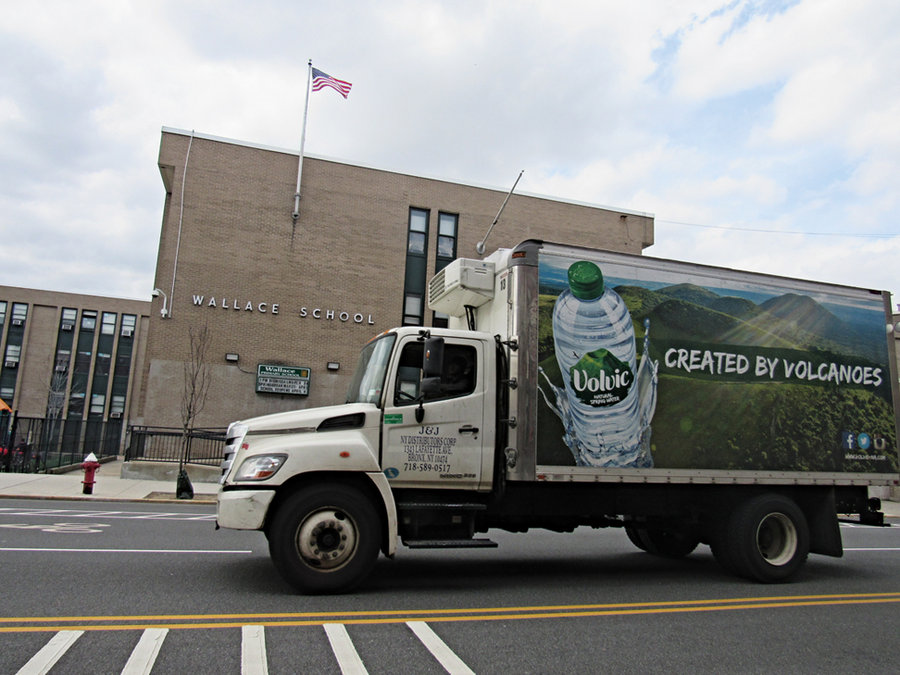The issue of schools unearthing high levels of lead in drinking water hasn’t yet hit home for Hoboken parent Vera Sirota. But in a way, it has. Her hometown in Detroit is an hour away from a crisis in Flint, Michigan in which lead has been discovered in the drinking water.
In another situation in Newark, which Sirota calls “heartbreaking,” parents and students have been faced with high levels of lead uncovered earlier this year at 30 schools.
“I don’t think we have the same complex issue here, but I’m very confident and happy that the leadership at the city and school level will address any possible issue we may have,” Sirota, who attends Hoboken Board of Education meetings and has lived in the city since 2003, said last week. “I call on SUEZ [formerly United Water] to be transparent and an honest broker on this issue. The parents of Hoboken are paying attention.”
“This is a deeper infrastructure problem in Hoboken and surrounding areas to have clean drinking water.” – Sheillah Dallara
____________
Sirota, who is pregnant and spent the spring break vacation at home resting, has a 5-year-old daughter who attends Joseph Brandt School.
The last time schools were tested by an independent firm was approximately 10 years ago, and Brandt School was the sole school that generated high levels of lead, Johnson said.
According to Director of Facilities Tim Calligy, “Only a few of the water fountains in Brandt had slightly elevated levels.”
“At that time, the district chose to take all of that schools’ fountains off line for precautionary reasons,” added Johnson. “Since then, only bottled water from coolers are used in Brandt.”
While new testing is conducted, students in all schools will be instructed to drink bottled water. The district has not said when they will release results.
Doc: How it can affect you
Dr. Meika Roberson, chief medical officer for Care Point Health at Hoboken University Medical Center, says lead affects people differently.
For children, infants, and pregnant women (technically the fetus) the concern with high levels of lead has to do with development.
“When lead is ingested we’re worried about toxic levels affecting the brain,” she said in a phone interview. “Severe lead poisoning would look like difficulty concentrating, decreased brain function, and altered behavioral issues.”
For adults, exposure to high levels of lead would result in a “weird flu” with stomach aches and vomiting.
Roberson says it is difficult to pinpoint a time frame as to when symptoms arise since it depends on level of intake.
Pediatricians routinely test young children for lead levels, as they can also ingest lead-based paint chips from old houses and structures. Paint used in modern buildings is not lead-based.
Ongoing issue of infrastructure
Old pipes also contain lead, particularly in a town like Hoboken with century-old infrastructure.
“This is a deeper infrastructure problem in Hoboken and surrounding areas to have clean drinking water,” said Sheillah Dallara, Hoboken Family Alliance’s events director. “It’s not like all these ‘issues’ just happened yesterday. There is so much back history, and it’s time for change and for long lasting repairs that will benefit residents.”
Newark school officials told media outlets that building fixtures made of lead or lead solder in the aging buildings likely made their way into the water.
Johnson did not respond by press time as to whether Hoboken schools run the same risk.
Thomas Connors Schools is the oldest school in the district at 108 years, followed by Brandt (95 years), Wallace School (44 years), and Salvatore Calabro (40 years).
Dallara, who has two children (5 and 6) at Wallace School, says she has the “upmost trust” in the superintendent as the district addresses any issues.
In early March, the city clarified for residents that the city of Hoboken sold the rights to their water system from 1994 to 2024. The city entered into a public-private partnership with United Water (now Suez Water) in exchange for millions of dollars in one-time budget revenues.
Suez said the contract is not responsible for infrastructure. “The city still has eight years remaining in a contract that requires Suez Water to make almost no proactive investment in our water infrastructure,” the city said in a press release.
However, last week, in a newsletter, Councilman Ravi Bhalla said the city is preparing to renegotiate the contract.
“I am very much eager to learn about the water quality in our district schools and hope this puts some pressure on the city to replace our water mains,” said parent of two, Linda Kwok.
The state Senate hopes to qualm concerns with their own action. As March got underway, the Senate’s Democratic leadership proposed $3 million be provided a year to schools for lead testing, plus an additional $20 million from the Clean Energy Fund for districts to install and update filters.
Steven Rodas can be reached at srodas@hudsonreporter.com.
